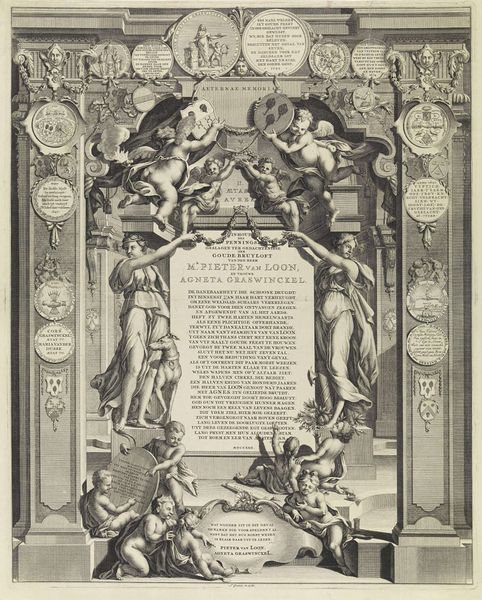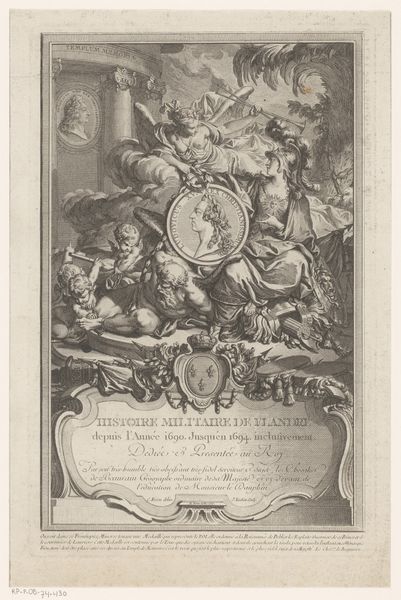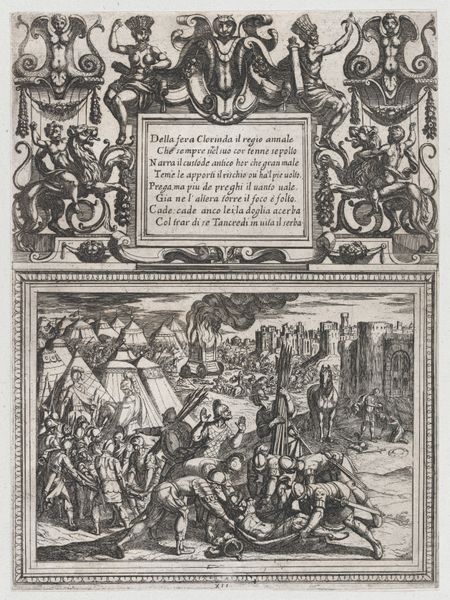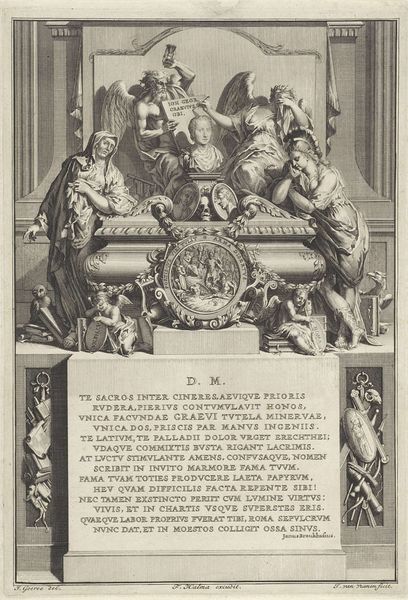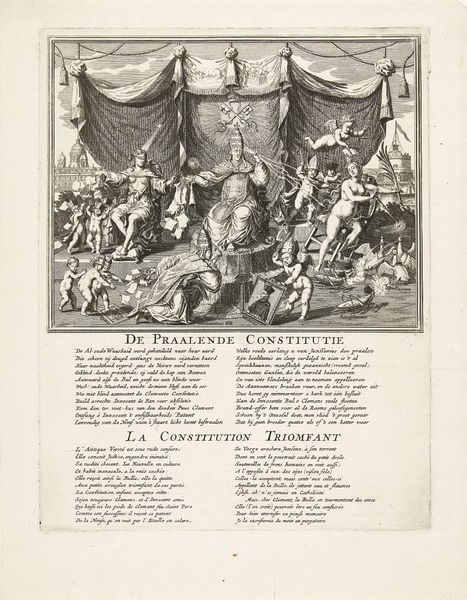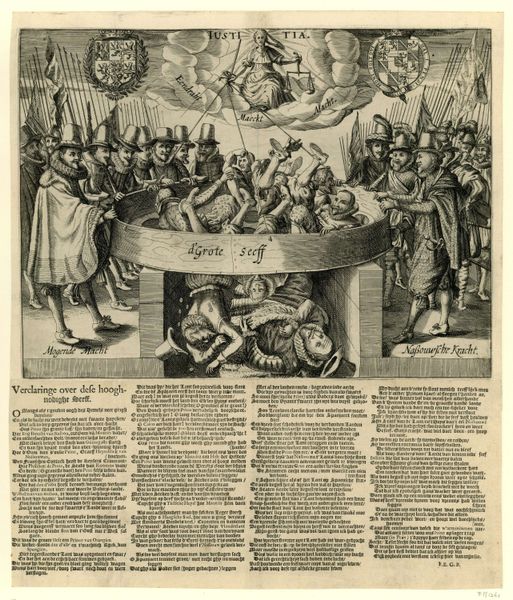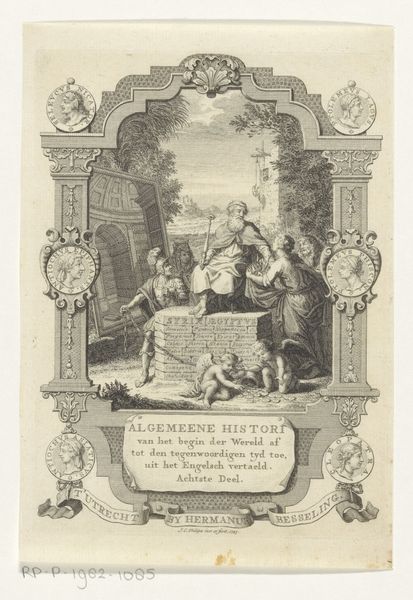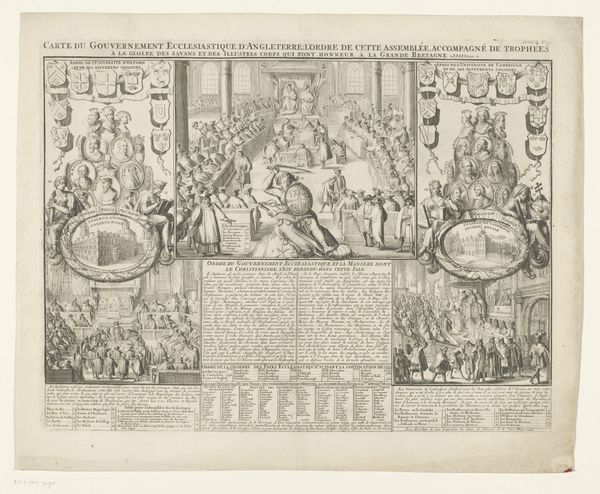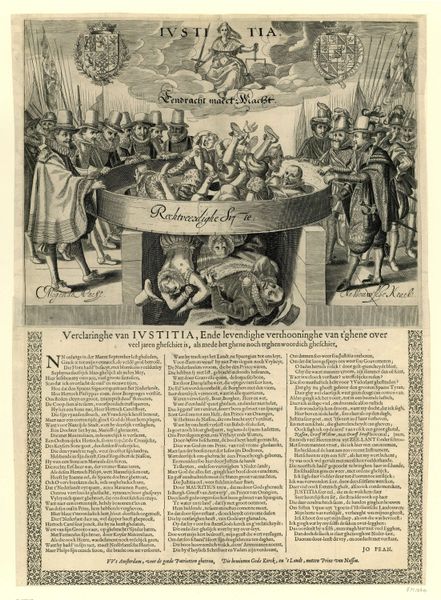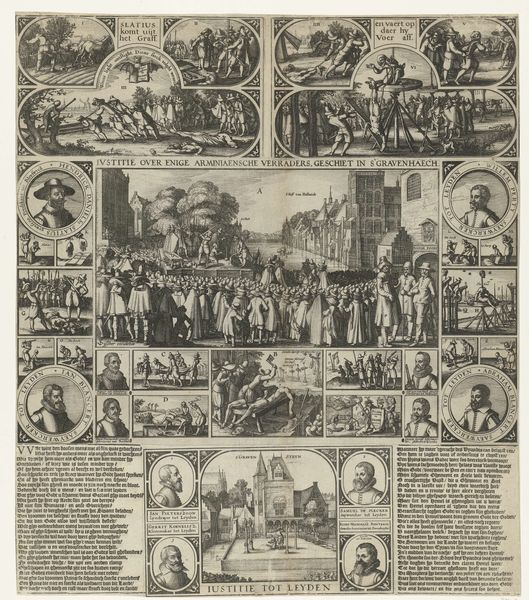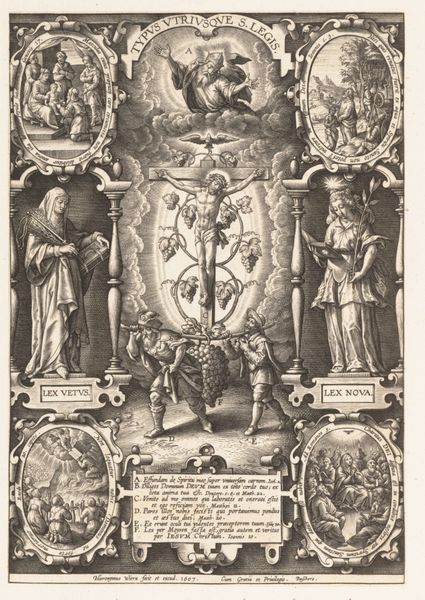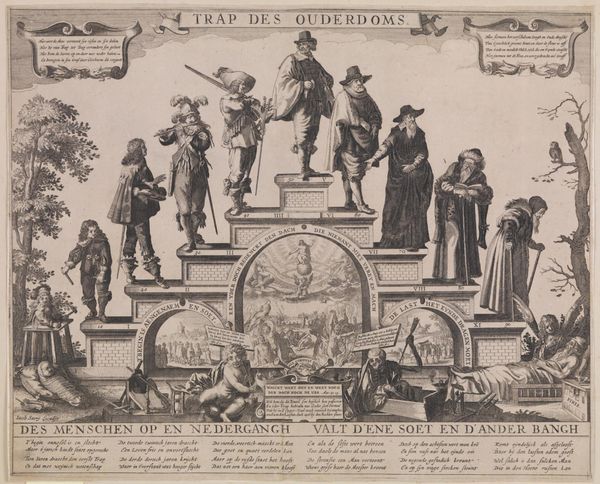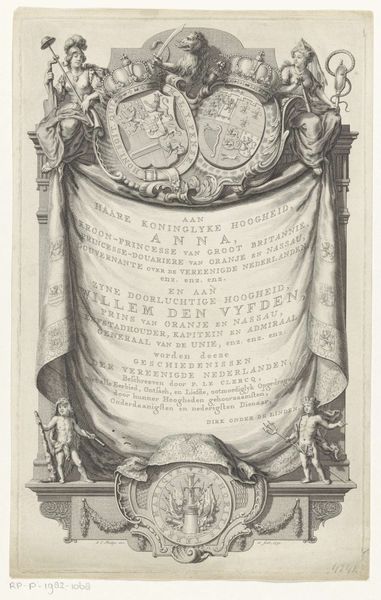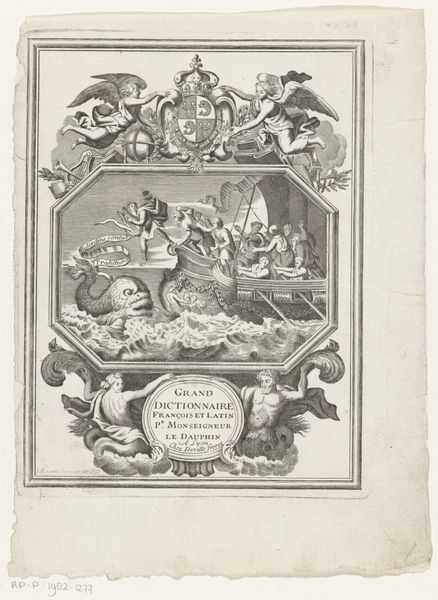
print, engraving
#
allegory
#
baroque
# print
#
history-painting
#
engraving
Dimensions: height 922 mm, width 605 mm
Copyright: Rijks Museum: Open Domain
Paulus Pontius created this print of Charles de La Vieuville in 1636. It’s an engraving, a medium that allowed for the relatively easy reproduction of images in 17th century Europe. Prints like this one played an important role in shaping public opinion and disseminating political ideas. La Vieuville was an important political figure in France at the time, and this print seems designed to promote his image and authority. The allegorical figures and symbolic imagery create meaning through cultural references and historical associations, conveying messages about power, virtue, and legitimacy. The design of the print is also interesting; the text block is set off with an elaborate frame, as if to monumentalize philosophical tenets of the time. Prints like this one give us a glimpse into the social and political landscape of the 17th century. By studying the imagery, symbolism, and context in which this print was made, we can gain a better understanding of the political dynamics of the time. We can consider questions such as: What role did images play in shaping public opinion? How did political figures like La Vieuville use art to promote their agendas? The answers might be found in pamphlets and letters preserved in national archives and libraries.
Comments
No comments
Be the first to comment and join the conversation on the ultimate creative platform.
